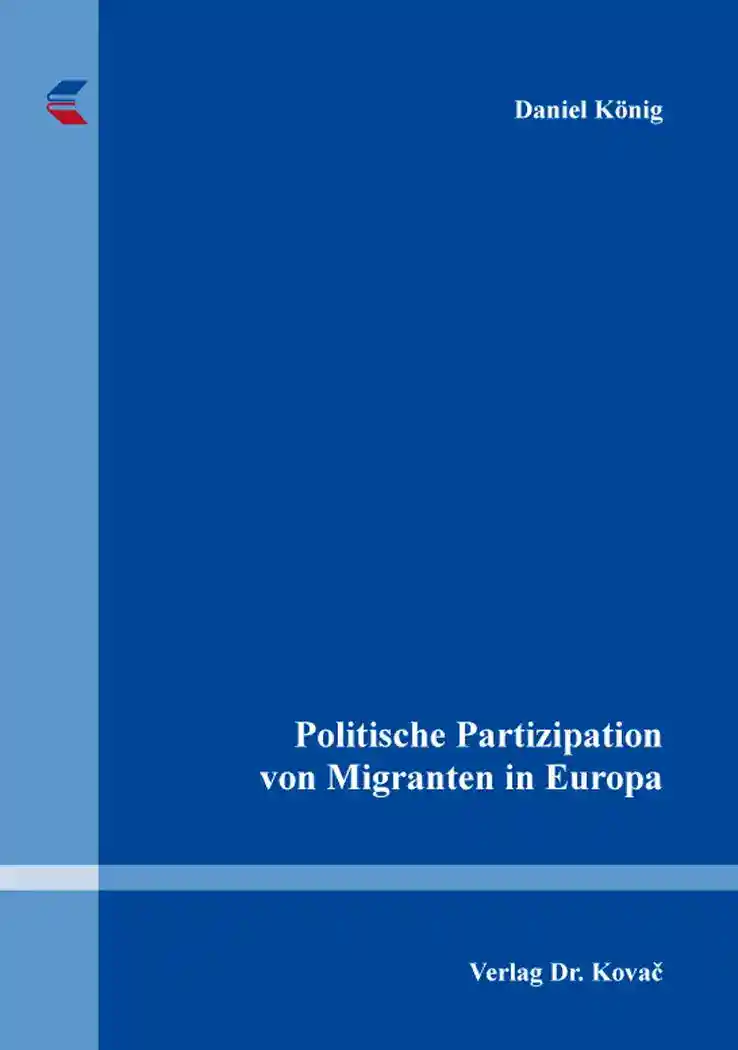Daniel KönigPolitische Partizipation von Migranten in Europa
Studien zur Migrationsforschung, volume 19
Hamburg 2019, 398 pages
ISBN 978-3-339-11054-1 (print) |ISBN 978-3-339-11055-8 (eBook)
About this book deutschenglish
Citizens in democratic states can articulate individual or collective interests through political participation and thus influence political decisions. By voting in national elections, every citizen who is entitled to vote can have a say in shaping policy. Migrants can only take advantage of this opportunity if they have acquired the nationality of the host country through naturalisation. In addition to going to the ballot box, there are other forms of political participation for which citizenship is not a criterion. Previous research results diagnosed the population with a migration background as less willing to participate in political co-determination in the host countries.
Therefore, the impact of the migration background on different forms of political participation is examined and further determinants of the political participation of migrants are identified. Based on these determinants, an explanatory model of the political participation of migrants will be developed and empirically tested. In a secondary analysis, the participation behaviour of approximately 130,000 respondents in 15 European countries in seven forms of political participation and the participation of the allochthonous and the autochthonous population is compared. Political participation is not triggered solely by individual characteristics, but is also influenced by determinants at the level of states. In order to test this influence and to validate the results of the upstream bivariate analyses, the theoretically identified determinants of the micro- and macro-level of the developed explanatory model are simultaneously tested in multi-level models.
The bivariate analyses have indicated that the migration background does not have a consistently negative influence on political participation, but that differences can be observed between the forms of participation investigated and the subgroups formed in the migration background. This was confirmed by the multi-level models. The lower willingness of the allochthonous population to participate described in the literature is not present in all forms of political participation or in all subgroups of the migrant background. The analyses of the seven forms of participation and the formed subgroups of the migration background provide a differentiated picture. The effect differs between the forms of participation and between the subgroups.
Keywords
EinbürgerungEuropaEuropäische UnionIntegrationMigrantenMigrationMigrationsgeschichteNationenkonzeptPolitikwissenschaftPolitische IntegrationPolitische PartizipationReligiösitätSoziologieStaatsbügerschaftIhr Werk im Verlag Dr. Kovač

Möchten Sie Ihre wissenschaftliche Arbeit publizieren? Erfahren Sie mehr über unsere günstigen Konditionen und unseren Service für Autorinnen und Autoren.
